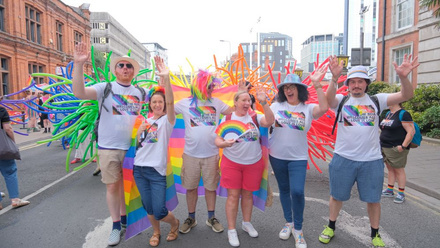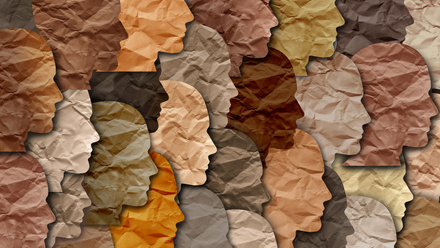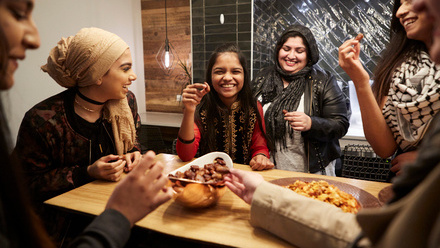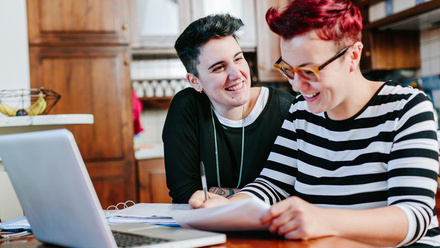Pride month takes place every year during June. The month is dedicated to celebrating LGBTQ+ communities around the world. BDA Chair Caroline Bovey explores why we celebrate Pride as an organisation.
We celebrate the lives and achievements of LGBTQ+ people and communities. The achievements and successes that we aim to celebrate are often hard fought and may have been at the cost of family, employment, relationships, freedoms and even lives.
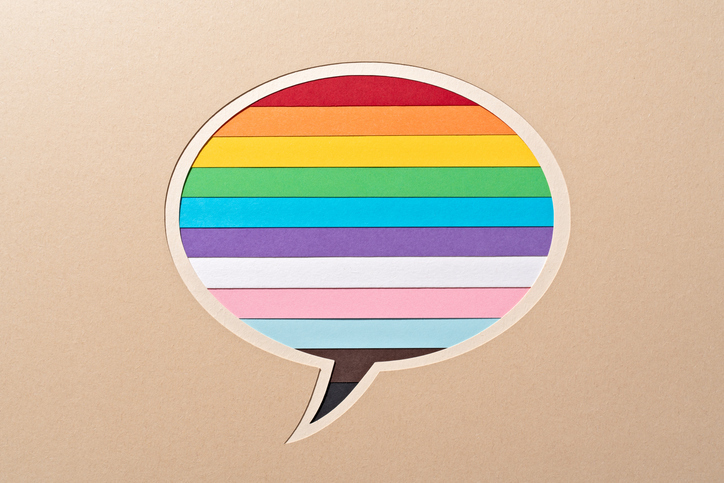
You will be aware that the Board of Directors approved the constitution of an EDI committee that reports directly to the Board of the association recently. This was one of the important goals I set myself for my time as chair of the BDA. Improving our track record in equalities and diversity was never going to be a quick fix, and, at times when progress can feel painfully slow, it can help to remind myself of the duration of some of our more enduring LGBTQ+ campaign threads.
Maybe, it’s helpful to think back to the origins of the current movement? As was common practice in many cities at the time, the New York Police Department would occasionally raid bars and restaurants where gay men and lesbians were known to gather. On 28 June 1969, the NYPD raided the Stonewall Inn, a bar on Christopher Street in the Greenwich Village neighbourhood of Manhattan.
When the police aggressively dragged customers and employees out of the bar, several people fought back and a growing crowd of angry locals gathered in the streets. The confrontations quickly escalated and sparked six days of protests and violent clashes with the NYPD outside the Stonewall Inn and throughout the neighbourhood.
By the time the Stonewall Riots ended on 2 July 1969, the gay rights movement went from being a fringe issue largely ignored by politicians and the media to front-page news worldwide.
As I write this I consider the relevance of these campaigns for us at the BDA, after all, I am often told by friends and colleagues that the gay, trans and gender non- conforming individuals and communities are “fine” now. People no longer get sacked for being gay, no longer suffer social isolation or hate crimes and no longer suffer bullying or harassment in the workplace, have services refused or are wrongly targeted. So, what’s the problem?
Like the Christopher Street riots of the late 1960s, the enduring campaigning of organisations such as Stonewall in the UK, Stonewall Cymru in Wales, and the EHRC, as well as countless local and international campaigners around the world, we are where we are due to hard won battles fought tirelessly by LGBTQ+ people throughout the last decades.
Whilst we witness perceptions of inclusivity and acceptance, where workplace policies protect staff, public sector agencies endeavour to build safe communities and to protect individuals and communities, and equalities laws have been strengthened to protect the rights of gay people as a protected characteristic, the reality for many, even some staff in our organisations, is very different.
The perception of all being “fine” is just that for many – a perception. Expected behaviours are publicly upheld in the main, but the micro aggressions, the subtle discrimination, the overt exclusions, all amount to the same thing – we have made progress but there is still a vast amount of work to do.
Some of you will have team members who are 'out' and you will be supportive and encouraging, and they will be as much a part of your team as your heterosexual colleagues.
But, what about those teams where there appear to be no gay, bi or trans or questioning team members? What about how we assess our patients? Can we always confidently assure that we consider the possibility that those around us may have a different sexuality or that they may be experiencing gender identity issues?
We have a large migrant population attending many of the services we provide. Do we consider that the reason someone has left their country of birth to travel to the UK may be because they are seeking a place of safety, and may even be one of the many individuals who faces punishments including lifetime imprisonment or death because of their sexuality or gender identity?
Put yourself in the position of someone arriving in an organisation whether that be the BDA or your workplace, either as a work colleague or as a nervous and vulnerable service user. Imagine that what you are seeing around you and hearing in conversation doesn't reflect you or what happens in your life?
In Pride month we have the opportunity to ensure that we allow our colleagues and service users to share stories and histories that are genuine and honest because we support them to be so, even when that makes us uncomfortable or challenges our understanding or our beliefs.
Pride gives us a chance to think about what can we do as an association, as employers, colleagues and as healthcare providers. Are we making things safe and comfortable for people to tell us who they really are and to help them create a positive history of their experience with the organisation?
And to finish, for those wondering if I am speaking from a place removed from any experience of risk, your current chair has personally experienced discrimination. Here are a few examples… frequently being addressed as sir, frequently being reported to caretakers and security for accessing female toilets/ changing rooms etc. and frequently being challenged on my status as care giver to my children. I’ve had numerous physical attacks based on others' perception of my presentation. I’ve even been told it would be unsuitable for me to work directly with families on a children’s community programme due to my identity and that I’ve been difficult and obstructive when asking for reassurances on how secure information is that identifies relationships in workplaces, which could potentially out someone. I could go on, but I think you get the picture.
So, I have achieved my goal of getting the EDI committee up and running but the committee can’t do this alone. We all have a role to play and I hope that you are coming on this journey with us.


